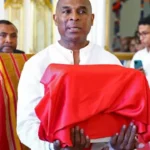Qatar has once again stepped into the spotlight as a mediator in one of Africa’s most persistent and devastating conflicts, hosting renewed talks between the government of the Democratic Republic of Congo (DRC) and the M23 rebel group. The high-stakes negotiations, which resumed in Doha, are aimed at salvaging a fragile ceasefire deal that has so far failed to bring peace to eastern Congo, where violence and displacement continue to spiral out of control.
The Qatari Ministry of Foreign Affairs confirmed that delegations from both Kinshasa and the M23 militia had arrived in Doha to revisit the terms of a July agreement that was originally designed to pave the way for a permanent end to hostilities in North and South Kivu. According to ministry spokesperson Majed al-Ansari, the current round of talks is focused on practical measures, including the creation of a monitoring mechanism for the ceasefire and the exchange of prisoners and detainees.
The July deal, brokered by Qatar, initially set ambitious timelines, with negotiations expected to begin on August 8 and conclude by August 18. However, both deadlines passed without progress, and since then, fighting between the Congolese army and M23 fighters has intensified. Despite the setbacks, al-Ansari stressed that Qatar remains committed to facilitating dialogue, working in close coordination with international actors including the United States and the International Committee of the Red Cross. Washington has played a parallel role, brokering a separate June ceasefire between the DRC and Rwanda, but that agreement was swiftly rejected by M23, which has consistently demanded direct negotiations with Kinshasa to address what it considers unresolved political grievances.
On the ground, however, the situation remains dire. Recent clashes have raised doubts about the viability of any ceasefire agreement, as both sides accuse the other of violations. Human Rights Watch has documented reports of ethnically targeted mass killings carried out by M23 rebels, while United Nations experts have accused Rwanda of playing a “critical” role in backing the insurgents—an allegation Kigali strongly denies.
The humanitarian crisis in eastern Congo is worsening at an alarming pace. Aid agencies report that more than two million people have been displaced in 2025 alone, forced from their homes by escalating violence in North and South Kivu. Christian Rumu of Amnesty International underscored the severity of the crisis, warning that ongoing atrocities could amount to crimes against humanity. “It is far from the reality to say that the war has ended,” he cautioned, pointing to systematic abuses and the failure of peace deals to hold.
The stakes are particularly high given eastern Congo’s vast reserves of natural resources such as gold, cobalt, and coltan—minerals critical to the global tech and green energy industries. Control over these resources has long been a driver of armed uprisings and regional instability. Earlier this year, M23 forces seized key territories, including the strategic city of Goma, heightening fears that the conflict could spill over into a wider regional war involving neighboring states.
For Qatar, the role of mediator underscores its growing influence as a diplomatic power broker in international conflicts, from Afghanistan to Africa’s Great Lakes region. Yet despite Doha’s efforts, the road to peace in Congo remains fraught with challenges. The talks, while a step forward, are unfolding against a backdrop of mistrust, competing regional interests, and the sheer scale of humanitarian suffering that continues to mount daily.
The question now is whether renewed dialogue can achieve what earlier agreements failed to deliver: a credible path to peace, accountability for atrocities, and relief for millions of Congolese civilians caught in the crossfire of a conflict that has already stretched on for decades.














Leave a comment